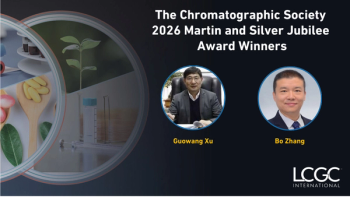
Inside the Laboratory: Grinias Research Lab at Rowan University, Part I – Jim Grinias Interview
In this series from LCGC, we go on location to the Grinias Research Lab at Rowan University and speak to Professor James Grinias about his background, teaching philosophy, students, and lab equipment.
Welcome to this installment of "In the Lab," in which the LCGC and Spectroscopy editorial team leaves their New Jersey office and ventures out in the field to area colleges and universities known for strong separation science programs, with the goal of giving our audience a window into the next generation of analytical chemists.
First on that list is Rowan University in Glassboro, New Jersey, home to the Grinias Research Lab headed by James Grinias, a professor in the department of Chemistry & Biochemistry. Jim’s work
The Grinias Research Lab has already helped supply portable liquid chromatography (LC) and mass spectrometry (MS) systems to the pharmaceutical industry, and
In the near future, LCGC will be releasing further video interviews with Grinias’ students as well as footage from inside the lab, and even instrumentation demonstrations. Please see below for more from Dr. Grinias, as our new series begins.
Check back soon for more from Rowan University and other analytical chemistry labs across higher education!
Newsletter
Join the global community of analytical scientists who trust LCGC for insights on the latest techniques, trends, and expert solutions in chromatography.




